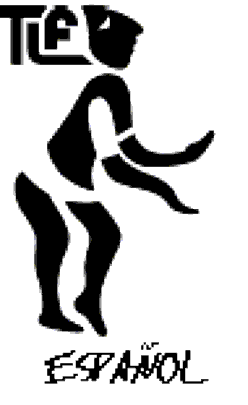
Vol. xxxix # 1
April, 2018
Tattoos and Tutus
-- David Inczauskis sj
 |
tlf news |
Vol. xxxix # 1 |
April, 2018 |
Tattoos and Tutus -- David Inczauskis sj | |||
|
la fragua presented The Assassination of Jesus in a prison last Friday. After a fifteen-minute ride through the notorious Palermo neighborhood, we reached the massive double doors outside the prison and knocked. A guy in plainclothes with a rifle strapped around his shoulder opened a slit in the door. We told him we were with the theater and the pastoral prison ministry. He smiled and pulled one of the doors open. We walked through the entrance into a dusty courtyard where we presented our ID's to the authorities. Called one by one, we passed through another door into the prison proper. Tattoos abounded on sleeveless skin. Two prisoners led us through hallways, small doors, and an open-air courtyard on our way to the presentation hall. In the courtyard men were listening to reggaeton. All sorts of garb and sheets hung on clotheslines that stretched from one wall to another. I had to duck several times to cross. Everyone seemed to be looking at us as we walked through. Our presence was creating some chatter. The presentation hall slowly filled as the actors became oriented to the space. Just before the start of the play, all of some fifty seats were occupied. Prisoners and guards began gathering in the hallway, struggling to be close enough to see and hear what was about to occur. I took a seat in the back next to two political prisoners who were picked up after the latest round of elections. When the cast began by announcing "the passion of the Christ according to St. John," I felt that Jesus was beside me in the prisoners and in front of me in the actor who played Christ. At first, St. John's passion highlights the raw power of the Word of God. When Jesus boldly says, "I AM" in the garden of Gethsemane, a tidal wave hits the angry crowds, and they fall to the floor, stunned by the strength of Jesus' proclamation. The narrator says, "The soldiers with their commander and the Temple police arrested Jesus and tied him up." I glance at the prison policeman resting his shoulder against a wall near stage right. Jesus writhes in pain on the cross. I look at the crosses etched in ink upon the backs and shoulders of the prisoners in front of me. They, too, bear the mark of the crucified Christ. The play ends abruptly as four players walk off the stage carrying the dead Jesus to his tomb. The crowd erupts in applause, but I am left thinking about how, for the prisoners around me, life must often be like a Good Friday without an Easter Sunday. The play is a rehearsal of the reality that the prisoners are living.
.................... Later that night, la fragua had a dance recital back at the theater. Little girls in tutus smile and kick their feet. The costumes are supremely cute, and the two boys amongst crowds of girls give the performance a unique tenderness. Mothers and fathers film their children on tablets and smart phones. Afterwards, there are loud giggles, flashing cameras, and pretty flowers everywhere. It was totally different from the performance at the prison, but it was nonetheless a meaningful and profound experience. In an age of digital consumption and alienated artistic labor, it is beautiful to see something produced and performed before our very eyes. I know the hard-working Honduran teacher who coordinated and choreographed. I know some of the Honduran kids dancing out there. They personally make me weep with them and laugh with them through their art. Moreover, the dance performance had a unique significance because it had been delayed to March because of the 6pm curfew enforced after the December elections. The recital was delayed but not defeated. It was delayed, but not permanently. In that sense, the recital was like my hope for the prisoners. I hope that, as with Jesus on Easter Sunday and the ballet school on that Friday night, the prisoners, too, will have their day of freedom and redemption. It will come. It is delayed but not defeated. This much I learned from the theater this spring. la fragua is a window to hope, a stage light shining in the darkness. David Inczauskis sj is a Jesuit scholastic at Loyola University Chicago, where he is pursuing master's degrees in Spanish literature and social philosophy. In Chicago he also serves as an eighth grade religion teacher, a chaplain to various student groups, and a spiritual director in the Ignatian tradition. David is currently working with the theater on a book about its history, style, and practice that will be published in 2019 by the Jesuits' Central American University in El Salvador. |